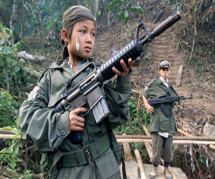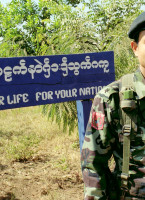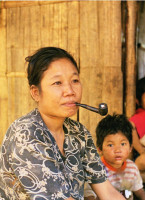Burma's New Government: Prospects for Governance and Peace in Ethnic States TNI-BCN Burma Policy Briefing Nr 6
Regiones
What are the prospects for Burma's quasi-civilian government effectively addressing the country's ethnic minority grievances and resolving the multiple, decades-long conflicts?

Descargas
If you have trouble viewing this publication in PDF, please kindly use an alternative PDF viewer.
This paper takes an initial look at what the prospects are in this area, two months after the new government took office. Of course, any analysis at this early stage can only be tentative, but there have already been a number of sufficiently important developments – the first sessions of the legislatures, the appointment of standing committees, and the appointment of local governments – to make such an analysis worthwhile.
Two key areas will be assessed: firstly, the composition and functioning of the new governance structures, particularly the decentralized legislative and executive institutions, and the impact that these could have on the governance of ethnic minority areas; and secondly, the status of the ceasefires and ongoing insurgencies, and the prospects for peace.
Key points
- Two months after a new government took over the reins of power in Burma, it is too early to make any definitive assessment of the prospects for improved governance and peace in ethnic areas. Initial signs give some reason for optimism, but the difficulty of overcoming sixty years of conflict and strongly-felt grievances and deep suspicions should not be underestimated.
- The economic and geostrategic realities are changing fast, and they will have a fundamental impact – positive and negative – on Burma’s borderlands. But unless ethnic communities are able to have much greater say in the governance of their affairs, and begin to see tangible benefits from the massive development projects in their areas, peace and broad-based development will remain elusive.
- The new decentralized governance structures have the potential to make a positive contribution in this regard, but it is unclear if they can evolve into sufficiently powerful and genuinely representative bodies quickly enough to satisfy ethnic nationality aspirations.
- There has been renewed fighting in Shan State, and there are warning signs that more ethnic ceasefires could break down. Negotiations with armed groups and an improved future for long-marginalized ethnic populations is the only way that peace can be achieved.
This joint TNI-BCN project aims to stimulate strategic thinking on addressing ethnic conflict in Burma and to give a voice to ethnic nationality groups who have until now been ignored and isolated in the international debate on the country. In order to respond to the challenges of 2010 and the future, TNI and BCN believe it is crucial to formulate practical and concrete policy options and define concrete benchmarks on progress that national and international actors can support. The project will aim to achieve greater support for a different Burma policy, which is pragmatic, engaged and grounded in reality.
The Transnational Institute (TNI) was founded in 1974 as an independent, international research and policy advocacy institute, with strong connections to transnational social movements and associated intellectuals concerned to steer the world in a democratic, equitable, environmentally sustainable and peaceful direction. Its point of departure is a belief that solutions to global problems require global cooperation.
Burma Center Netherlands (BCN) was founded in 1993. It works towards democratisation and respect for human rights in Burma. BCN does this through information dissemination, lobby and campaign work, and the strengthening of Burmese civil society organisations. In recent years the focus has shifted away from campaigning for economic isolation towards advocacy in support of civil society and a solution to the ethnic crises in Burma.
Pages: 12


